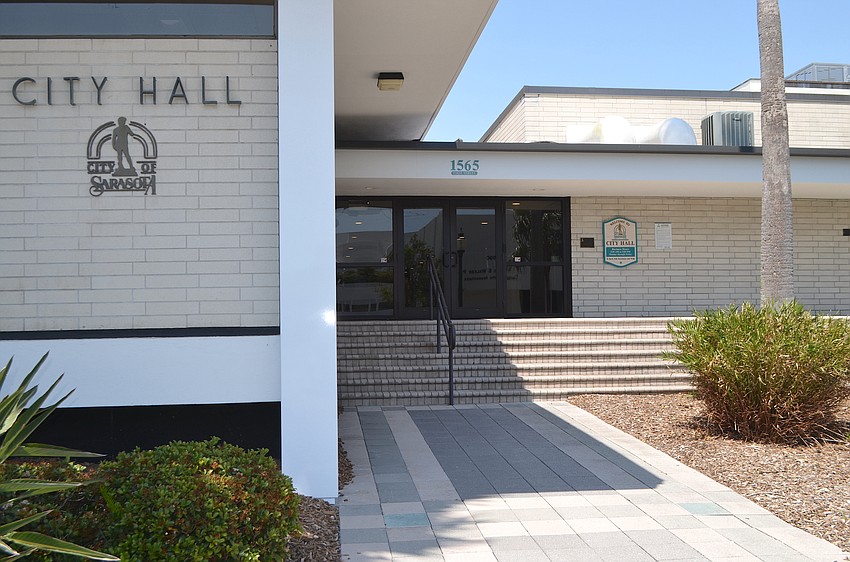- May 4, 2024
-
-
Loading

Loading
Before the Sarasota City Commission begins the 2025 budget process, it first learned of the city’s financial condition at the conclusion of its most recent full fiscal year, 2023.
During the commission’s April 15 meeting, Financial Administration Director Kelly Strickland reported the city finished FY2023 with $98.5 million in revenue, nearly 20% more than the budgeted income of $82.6 million, a difference of nearly $15.9 million.
That excess wasn’t derived from property taxes. Rather, all revenue sources such as franchise fees, sales taxes, permits, service charges, public safety premium taxes, investment earnings, etc. came in at higher than budgeted levels, with the exception of various miscellaneous revenues, which were received at 91.8% of budget.
Also, FEMA reimbursed the city $4.2 million for expenses incurred during Hurricane Ian, and the city received $3.3 million from the American Rescue Plan Act. That was topped by the city’s investment earnings which, budgeted at $50,000, totaled $1.7 million, or 3,498% of budget.

Commissioner Erik Arroyo asked Strickland for an explanation of that eye-popping leap in investment earnings.
“Because we only budgeted to get $50,000,” Strickland said. “We had such a bad year the previous year, the last few years, and it really isn't a good idea to rely on interest income. So we budgeted very low.”
All that extra revenue came in handy as the general fund expenditures for the fiscal year were nearly $94.5 million, the $4 million excess revenue over expenditures padding the general fund balance to a total of $36.2 million. The percentage of unassigned fund balance at nearly $30 million to expenditures at $94.4 million is 31.8%, exceeding the city’s fund balance policy and the recommendation of the Government Finance Officers Association of 17% to 25%.
“Each year during the early stages of the budget process we estimate what our change in assessed values will be,” Strickland said, adding that FY2023 actuals exceeded estimate by just more than 3%. “We estimated we were going to have a 10% increase in assessed values and we actually had 13.2%.”
All of that data sets the stage for the upcoming FY2025 budget sessions, and one purpose of the financial condition update was to receive a wish list from commissioners for capital improvement projects for the upcoming year.
On July 1, the county property appraiser’s office provides its official estimate for next year’s assessed values, which forms the basis of the preliminary budget that will be presented to the commission. By the end of July, the ad valorem rates are set and the budget figures sharpened.
A consensus opinion of the commission for capital project consideration is the development of a 3D modeling of the city, a detailed digital representation of infrastructure that can be used to simulate real-world plans such as traffic impact and the height and effects of proposed buildings.
“My usual thing is the affordable housing issues, and this would be along the lines of staffing,” said Commissioner Debbie Trice. “I think we need somebody who's going to plan how the city is going to respond and is going to provide those services to the developers and to the residents.”
Arroyo, an advocate of alley beautification, said he’d like to see at least one alley project in the capital improvement plan. City Manager Marlon Brown told Arroyo he can expect such a proposal forthcoming, and that it will be funded by the penny tax.
Vice Mayor Jen Ahearn-Koch revived the idea of creating park districts and dedicating funding to each to facilitate more local management of the parks. That idea has failed in the past, failing to garner unanimous commission vote to set millage rates for each district. Brown said the idea can be revisited, but the earliest consideration would be fiscal year 2026.
The commission's budget workshops will begin in July. Until then, Strickland left commissioners with much to think about.
“What we're looking at now for our fiscal year 2025 budget is we have a (consumer price index) increase of 3.8%. Looking at the estimate of what our expenditures were last year, that's a million dollars. We are currently in union negotiations, so we don't really know what the outcome of that is going to be. We also have potential salary increases for the non-bargaining, again, because we're not that far along in the budget process, we don't know what that will be at this time.”
The city’s pension contribution will also increase by $3.4 million, the impact of poor interest income returns from fiscal year 2022 resulting in underfunding.
“Our unrealized losses are huge, so what we have to do in our pension funds is we have to make that up,” Strickland said. “Thankfully they don't make us do it all in one year, but our upcoming contribution is quite a large change.”